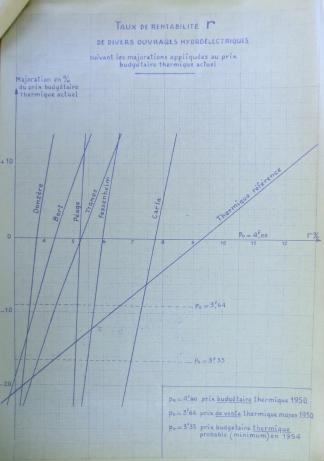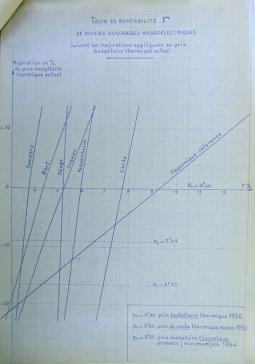This project focuses on the electricity sector in postwar France and a series of tools developed for investment planning by a small group of engineer-economists. The latter made significant contributions to economic theory while building operational management rules for the reconstruction of a crucial area of the national economy. This case allows us to study empirically the importance, the role and the effects of economic calculations, when they are conducted for decision-making purposes, to solve very practical problems and politically contentious questions.
These engineer-economists might have initially dreamed of applying Walrasian general equilibrium theory to achieve the full optimization of the French electric sector. They seemed to have thought that the theory could unambiguously define which power plants and distribution networks ought to be built to meet future demand at the lowest cost, and maximize the efficiency of the national economy as a whole. But if one traces the history of their work in the archives of Électricité de France and beyond, the story becomes different. Economic theory and the equations of welfare optimum did not determine policy decisions and investment choices. Rather, they helped to create consistency and coherence between numerous contested choices.
In particular, different consumption patterns (domestic lightning, domestic heating, intensive use of electricity for aluminum production…) were articulated with different means of production, in the long term. Economic calculations helped to make choices explicit and disputable (for example about industrial development, land-use planning, equity between cities and countryside), and to inscribe, through different prices, costs, or energy movements, these choices in production and consumption decisions. Economic calculations thus became a very important means to build social consensus and the general interest in De Gaulle’s France.

Ranking of hydroelectric plants projects on the basis of different pricing strategies for thermal power (Électricité de France Archives 1950).

